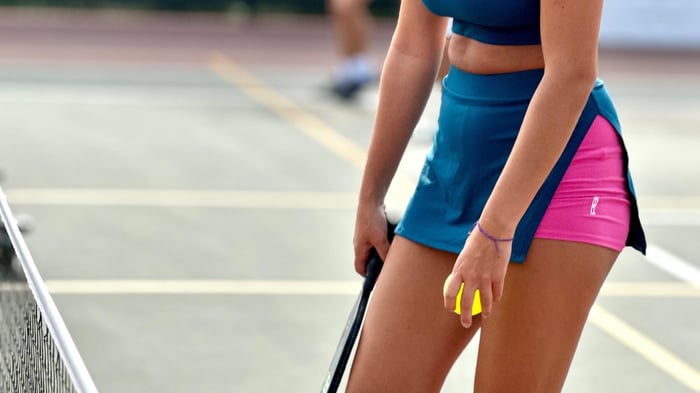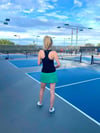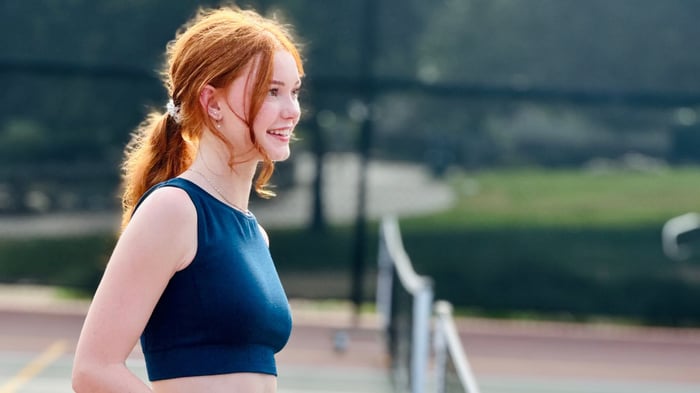Key takeaways:
Chronic fatigue, poor sleep, and recurring injuries are clear signs of overtraining that shouldn't be ignored.
Balancing effort with rest and recovery improves both physical performance and mental focus over time.
Listening to your body and adjusting your schedule prevents burnout, boosts long-term progress, and keeps you on the court longer.
When your pickleball game starts slipping but your schedule hasn't changed, the problem might not be your paddle. It could be your body trying to send a message. Overtraining is sneaky. It shows up in ways that seem harmless at first, like staying sore a little longer or feeling unusually grumpy after matches.
If you're constantly running on empty, battling random aches, or mentally checked out on the court, it's time to stop pushing and start paying attention. PB5star has recovery-focused gear and helpful resources here.
Catching the early signs of overtraining is a game-changer. You'll avoid long-term injury, feel better overall, and actually start improving again. So, let's start with one of the most common signals your body throws out when it's stretched too thin. Fatigue that just won't budge.
Constant fatigue that won't go away
Feeling a little tired after a match is normal. But when you're waking up tired, dragging through your warm-up, and still feeling wiped days later, your body's sounding an alarm.
Chronic fatigue often gets mistaken for "just a tough week," but it's actually a sign your body isn't recovering. Overtraining messes with your energy systems and drains your reserves, which can mess with everything from coordination to focus.
Ways to combat constant fatigue:
Add at least one full rest day per week.
Rotate high- and low-intensity workouts.
Prioritize hydration and whole-food meals with enough carbs and protein.
And if fatigue hasn't gotten your attention yet, those muscles that won't stop aching might just do the trick.
Sore muscles that never fully recover
There's a difference between that good sore you feel after a solid workout and the kind that sticks around way too long. When you're sore for more than 72 hours, or the same muscle group is constantly aching, it's not just your muscles growing. It could be tissue breakdown from overuse.
This kind of soreness can turn into chronic issues if ignored. It can even mess with your form and lead to injuries in other parts of your body.
Tips to manage soreness:
Use recovery slides after sessions to reduce joint pressure.
Stretch after every session, even if it's just 10 minutes.
Include low-impact movement like swimming or walking on off days.
Just when your body needs deep rest the most, overtraining can also throw off your sleep.
Trouble sleeping even when you're exhausted
It may seem counterintuitive, but overtraining can actually make it hard to sleep, even if you're completely wiped. Constant physical stress raises cortisol levels, making it hard for your body to settle into deep sleep.
If you're tossing and turning, waking up a lot, or feeling unrested even after eight hours, your recovery could be compromised.
Sleep recovery hacks:
Shut down screens an hour before bed.
Keep your room cool and dark.
Try light stretching or breathwork to calm your nervous system before sleep.
Of course, it's not just your body that takes the hit. Overtraining can wear down your mental game too, and it shows up in your mood.
Mood swings, anxiety, or lack of motivation
Training hard can absolutely boost your mood. But too much without recovery is a fast track to emotional burnout. If you're snapping at teammates, dreading matches, or just not feeling like yourself, something's off.
Your brain and your body are deeply connected. Overtraining can leave you mentally drained, anxious, or emotionally numb. And when your mood's off, your game suffers too.
Try these simple shifts:
Track your mood just like your training. Patterns matter.
Shorten your sessions if you're feeling emotionally fried.
Pick up some gear that makes you feel good and lightens the mood, like PB5star's men's and women's apparel.
But if you're pushing through both physical fatigue and mental fog, something worse might be waiting around the corner, like injuries and frustrating plateaus.
More injuries, slower recovery, and no progress
Here's the big red flag. If you're getting injured more often or just not bouncing back the way you used to, overtraining is likely part of the problem. Over time, your joints, muscles, and ligaments stop responding to stress the way they should.
Even worse, your progress plateaus or declines. You're showing up, but nothing improves. That's a clear sign to back off and adjust.
Here's what helps:
Add variation to your training. Mix skills, drills, and rest.
Use supportive gear like PB5 Court2 shoes to reduce injury risk.
Don't ignore recovery. It's part of training, not a bonus.
Still have questions? You're not alone. Let's clear up a few things other players are wondering too.about,
Frequently asked questions (FAQs) about recognizing signs of overtraining
What are the early signs of overtraining in pickleball?
Persistent fatigue, lack of motivation, muscle soreness that lasts for days, disrupted sleep, and frequent injuries are all strong indicators.
How can I balance training intensity to avoid overtraining?
Alternate high- and low-intensity sessions and always include at least one full rest day. Listen when your body feels unusually heavy or sluggish.
How many days a week should you play pickleball?
Three to four days per week works well for most players. The key is adding active recovery and spacing out tough matches.
Can you play too much pickleball?
Yes. Without rest, your body breaks down faster, your reaction time slows, and your risk for injury increases.
Why am I so exhausted after playing pickleball?
You may not be recovering properly. It could be due to lack of sleep, dehydration, low fuel, or just too much play in a short time.
Can nutrition help prevent overtraining?
Absolutely. Balanced meals, regular hydration, and protein for muscle recovery can speed up healing and energy restoration.
Can overtraining affect my mental health, and how can I manage it?
Yes. Overtraining can cause anxiety, mood dips, and burnout. Try mindfulness, shorter sessions, or a total rest day when needed.
Don't ignore what your body's telling you
Training more doesn't always mean improving more. The strongest players know when to push and when to pause. Overtraining puts everything at risk: your joints, your progress, and even your enjoyment of the game.
Take care of your body, and it'll take care of your performance. If you're feeling run-down, sore, or stuck, it's not a weakness. It's feedback. Give yourself the rest, recovery, and the right gear to keep showing up strong.
Fuel your recovery with gear that's built for champions. Explore high-performance essentials at PB5star and get back to peak form faster.







